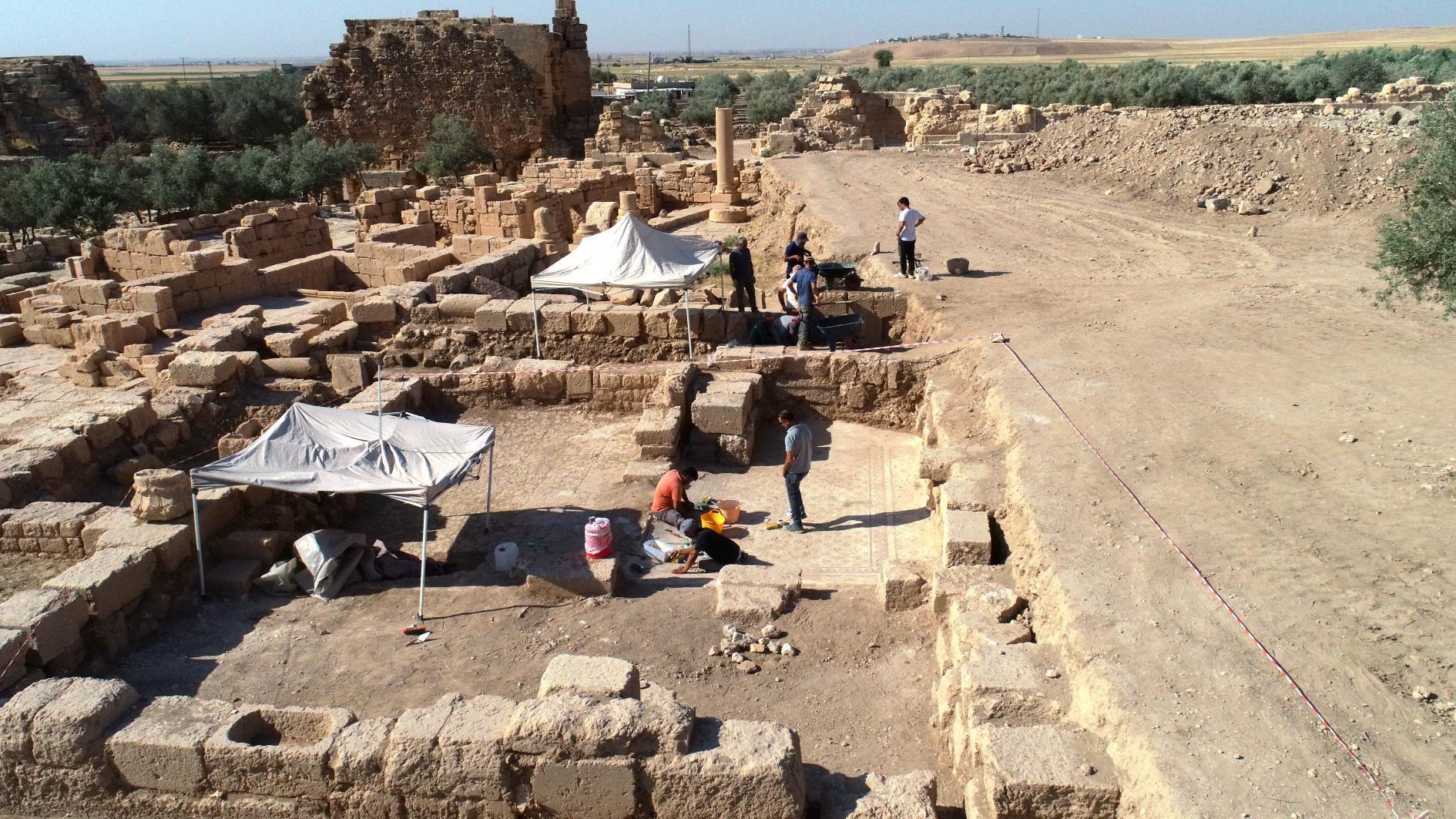
Despite high summer temperatures, archaeologists, laborers and student volunteers are working on excavations in the southeastern provinces of Diyarbakır and Mardin to unearth Türkiye’s ancient heritage
Archaeological excavations are underway in two significant locations in the region: The rural İnkaya neighborhood of Diyarbakır’s Kulp district and the ancient city of Dara in Mardin’s Artuklu district. As temperatures soar, researchers begin work at sunrise and continue into the evening, taking breaks under makeshift tents to shelter from the extreme heat.
Excavations in İnkaya were launched in 2021 by the Diyarbakır Museum Directorate following the discovery of a bronze cross during surface surveys. This season’s dig, led by Dr. Feray Korucu Yağız of Istanbul Medeniyet University’s Art History Department, includes six experts, 22 laborers and three volunteers.
“This year we are focusing on a large, basilica-planned church built along an east-west axis,” Yağız told Anadolu Agency. “The liturgical space and apsidal structure show architectural similarities to churches in northern Syria.”
Yağız said that graves found on the southern, western and northern sides of the church indicate it remained in continuous use until the 13th century. “The burial practices reflect Christian traditions, with individuals interred alongside personal belongings,” she added.
Despite the extreme heat, Yağız emphasized the importance of the work: “Every find is a significant contribution. The heat in Diyarbakır is intense, but each discovery is deeply rewarding. We’ve installed shade tents and increased break frequency to protect the team.”
Site supervisor Kemal Atak noted that while most of the church’s layout has been revealed, some architectural puzzles remain. “With temperatures sometimes reaching 50 degrees in the sun, it’s tough, but the finds keep our spirits high,” he said.
In Mardin’s ancient city of Dara, excavations have been ongoing for 38 years. This season’s work, part of the Culture and Tourism Ministry’s “Legacy for the Future” project, involves a team of 14 including archaeologists, art historians and conservators.
So far, researchers have uncovered a wide array of structures, including a necropolis, a church, an agora, a prison, a palace and a water reservoir, along with over 10,000 artifacts. This season’s highlights include a 1,500-year-old water system and residential structures near shops and workshops; some decorated with drop and wave-patterned mosaics.
Archaeologist Devrim Hasan Menteşe, the site’s excavation director, said year-round work brings both freezing winters and searing summers. “In the summer, we start as early as 6 a.m. due to the intense heat,” he explained.
“We are currently focusing on the agora area, where we are identifying the functions of various shops through artifacts,” Menteşe added. “Despite the 50-degree heat, it is fulfilling to reveal cultural treasures.”
Excavation worker Murat Açıl, involved in the digs for 22 years, said, “Even in 45-degree heat, we carry on meticulously to uncover Mardin’s history.” His colleague Yaşar Aba, now in his 23rd year on the site, added, “Working in this heat is challenging, but it’s a privilege to contribute to the cultural heritage of both our city and country.”